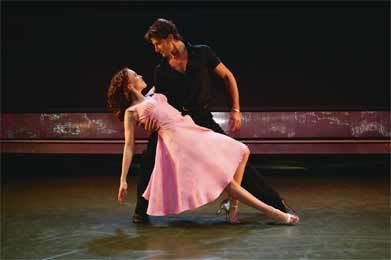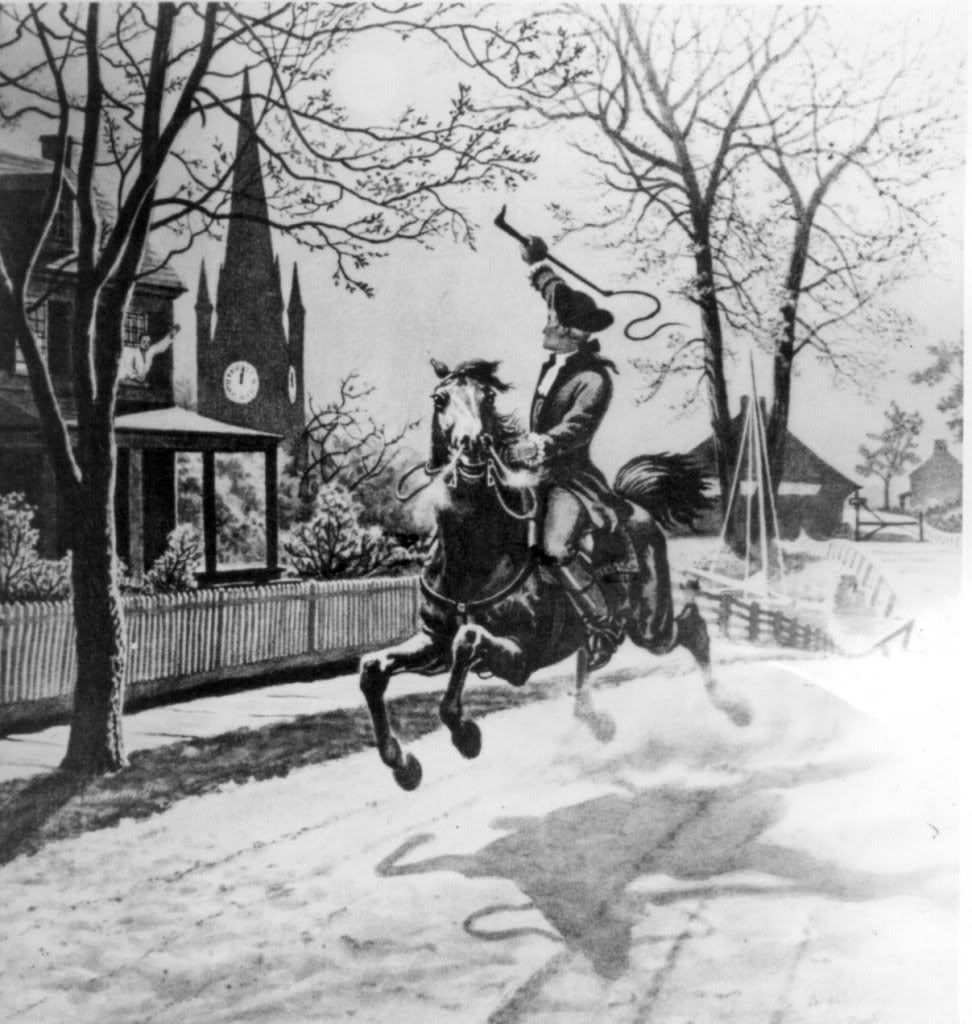Author's posts
Nov 27 2010
Original v. Cover — #53 in a Series
Many among us recently celebrated that annual holiday designated for the giving of thanks; a day when we take note of that half of our glass that is full and express our gratitude for that inheritance, however meager it may be.
By contrast, if we are among the privileged few whose fortunes have continued to grow, in spite of and often because of the euphemistically named Great Recession, our glass is probably 75%, 90% or even 95% full.
Nov 20 2010
Original v. Cover — #52 in a Series
A series of winter holidays is rapidly approaching, possibly intended to divert our attention away from the long, cold, dark nights have already begun, with a vengeance in some areas of the country. Some have already sent their letters to Santa, including their wish list, and for those whose wants are many, some have likely discovered that the postage is cheaper if the list is included on a recordable DVD. The title of this week’s song may serve as a reminder for some of us who haven’t finalized our wish lists yet. If that hoped-for gift doesn’t arrive in late December, the similar wish could be made for Valentine’s Day.
Unless you were around in 1950, you may not remember when this week’s feature song was released. Even if you were, depending upon your musical tastes, you still may not have heard it. This was a time when songs could reach #1 on the R&B charts, as did this song, and yet be completely absent from the pop charts. This frequently covered blues ballad was considered one of the most influential of its time. Quite possibly rare for its time, the lyrics combined an awareness of world conflict, with a plaintive expression of the need for love.
Nov 13 2010
Original v. Cover — #51 in a Series
Are you convinced that the best rock music ever was produced in the 1960s and possibly the early 1970s as well? Ever wonder why?
The 1999 film “The Straight Story”, resulting from a rather unlikely collaboration between David Lynch and Disney, recounts the true story of a real life Iowa septuagenarian Alvin Straight. In 1994, his own health declining, he receives word that his estranged brother in Mt. Zion, Wisconsin has suffered a stroke and is seriously ill. Unable to drive because his legs and eyes are too impaired, and unwilling to allow anyone else take him there, he sets out on a 240-mile, six week journey on his garden tractor (top speed = 5 mph), hopeful that he can reach his ailing brother and possibly heal a long-standing rift between the two before it’s too late.
Nov 08 2010
Does “Waiting for Superman” Avoid Some Inconvenient Truths?
Perhaps you, already impressed with “An Inconvenient Truth”, eagerly awaited the release of “Waiting for Superman” this fall. Despite the merits of “An Inconvenient Truth”, this writer was of the firm opinion that it glossed over some critical information and was designed to spare their audiences some rather unpleasant truths. But upon seeing “Waiting for Superman”, the sense of being subjected to a slick overextended infomercial was inescapable.
Just before entering the theater, at a membership-supported arthouse venue, someone was conveniently stationed outside the entrance handing out promotional literature, offering the chance to win $1,000, which could be applied to the cost of an education. Having been my very first ever encounter with such an approach, troubling questions arose before the previews even began.
Nov 06 2010
Original v. Cover — #50 in a Series
This week’s cover version was performed by an album-rock oriented jazz rock group who became known to the country in 1972 with their first ever Top 40 hit, which debuted on the Billboard Hot 100 on November 18, 1972, rising to #6 in 1973. Although the song was credited to “Trad”, it was actually co-written by the group’s two enigmatic leaders. It was written in the key of G minor, employing a significant amount of syncopation in the vocal melody, which was somewhat rare in rock music at the time. It was also one of the first times in pop music in which the pitch-shifting technique was used during the organ solo. An electric sitar solo was also included for additional effect.
The group itself peaked in popularity in the late 1970s, having released seven albums that were a unique mix of jazz, rock, funk, R&B and pop. Rolling Stone magazine referred to them as “The perfect musical antiheroes for the Seventies.” Contrary to the simple 1-4-5 chord sequence of classics such as “Louie, Louie”, the group’s songs were characterized by complex jazz-influenced structures and harmonies, not exactly the kind of music that most musicians could play by ear unless they were very talented. Their lyrics have been referred to as “cerebral, wry and eccentric”, punctuated by sharp sarcasm, exploring themes such as crime, drugs, love affairs and their true-to-life contempt for hippie culture.
Oct 30 2010
Some of You Aren’t Going to Like This Either!
Imagine Barack Obama seated in a dunk tank. Given the current state of affairs, many self-proclaimed progressives would literally elbow aside their Tea-Party brethern in their fervor to fire off a few fastballs, as their compatriots dump bags of ice cubes into the tank itself.
This writer, like many, has been extremely disappointed with Barack Obama, however, unlike many on the left, was unimpressed with his legislative accomplishments at the time of his 2008 presidential campaign. The search for any meaningful indication of political courage, any instance of swaying others to support a differing point of view, or exerting real leadership on any matter of substance was in vain. Some of us hoped, based upon faith alone, that once safely esconced in office, the promise conveyed by his soaring rhetoric would translate into meaningful action.
Oct 30 2010
Original v. Cover — #49 in a Series
This week’s selection was written by Clarence (Sonny) Henry and recorded by jazz percussionist Willie Bobo in 1968 on his album “Soul Jazz.” In 1969, a cover version of the song was recorded by a San Francisco-based group who pioneered a new sound and embarked upon a four-decade-long run which continues to the present day.
Released as a single in late 1969, this song would mark this band’s first taste of commercial success, rising to a #9 ranking on the Billboard Hot 100 singles chart. In addition to playing a memorable solo on the Hammond B-3 in the middle of the song, the organist was also the lead vocalist. The group leader’s guitar solo would introduce his flamboyant, iconic style to a much broader audience.
The guitarist and group’s namesake, born in Mexico in 1947, was the son of an accomplished Mariachi violinist, and was a young violin prodigy himself, performing with his father’s band in the streets of Tijuana until he heard blues and rock and roll on the radio. He switched to the guitar, and as they say, the rest is history.
Oct 24 2010
Some of You Aren’t Going to Like This!
Unless you’ve already voted, you have a decision that must be made by no later than November 2, 2010. Will you choose to exercise your right to vote?
Unless this writer has misjudged the mood of the Docudharma community, there seems to be a prevailing sentiment that the Democrats need to be taught a lesson. If enough of their supporters from 2006 and 2008 stay at home this time, perhaps they will learn a lesson. But the question must be asked, “What will that lesson be?”
Will the Democrats, soon to become a severely chastened minority party, move to the left to recapture the hearts and minds of those who have voluntarily surrendered their right to vote? Will they regard this portion of their electorate as fickle and unreliable, choosing to move further to the right, even further marginalizing the progressives, compensating for their losses by attempting to secure the support of those occupying that elusive “center” of the political continuum? The clear shift to the right under the influence of the deceptively named Tea Party by the Republicans has created a gaping vaccuum in the so-called “center.”
Will the Democrats perceive the stay-at-home progressives as an important constituency to be recaptured at all costs, or simply write them off as not worth the trouble? Even though abortions are still performed in this country, gay marriage is now legal in several states, we haven’t yet adopted a state religion, and a few civil rights still remain, the Republicans can rest easy knowing that the Right to Life movement, the Christian Right, the NRA and the libertarians will show up without fail. And they can still take this for granted even though much that was on these respective factions’ wish lists were not enacted, even with clear Republican majorities from January, 2003 through January, 2007.
Oct 23 2010
Original v. Cover — #48 in a Series
This week’s selection was composed and performed by a San Francisco, California-based group of family and friends, referred to as the first major American rock band to have an “integrated, multi-gender lineup.” The song was the first of eleven Top 40 songs for this group, first breaking into the Top 40 on March 2, 1968, rising to the #8 ranking, remaining on that list for twelve weeks. The group’s work greatly influenced the sound of American pop music, soul, R&B, funk and hip hop music. They were honored in 1993 when they were inducted into the Rock and Roll Hall of Fame. In 2004, Rolling Stone magazine ranked the group at #43 on their list of the 100 Greatest Artists of All Time. The group’s style of music has been dubbed as “psychedelic soul.”
Oct 15 2010
Original v. Cover — #47 in a Series
This week’s selection was written and first performed in 1960 by the most successful duo in history, and became their fourth and largest #1 hit. The song sold eight-million copies worldwide, resided at the #1 spot on the Billboard Hot 100 charts for five weeks and even spent one week at the pinnacle of the Billboard R&B charts. This single also captured the attention of the Brits, occupying the top position on the U.K. pop charts for seven weeks in May-June, 1960. This number is also ranked #149 on the Rolling Stone magazine’s list of The 500 Greatest Songs of All Time. Years later, The Beatles based the vocal arrangement of “Please Please Me” on this song.
More than three decades later in 1989, this song would become a hit again, only this time the cover version by a female country artist would top both the U. S. Billboard Hot Country Singles and the Canadian RPM Country Tracks charts. Since the vocalist was female, the lyrics were slightly altered, now telling the story from the perspective of another woman observing the storyline. The video accompanying this song starred Bruce Boxleitner, playing a rather unusual role, in keeping with an Old West motif.
Oct 09 2010
Original v. Cover — #46 in a Series
Note: Due to previous commitments, this writer will be unable to post an opening comment for ponies, so if someone could please do this on my behalf, it would be much appreciated.
Since the upcoming week will be extremely busy, this seemed a perfect time to pay homage to one of the one-hit wonders from the late 1960s, a less complex undertaking, in the event that this writer might not be able to add an opening comment anytime soon.
The group performing this week’s selection began as the Fydallians in 1964, initially formed in Sacramento, California to compete in an Air Force talent contest. While working in the Southern California area, they were discovered by a representative for Columbia Records and were signed to a recording contract, but the label insisted that they change their name. During a time when most pop musicians wore long hair, they looked curiously behind the times. The group named itself after a 1946 film, but deliberately misspelled the name.
Oct 02 2010
Original v. Cover — #45 in a Series
Can’t decide which genre you like best? Does this list include Southern rock, soul music, blues and country music? This week’s selection covers all four bases, temporarily delaying such a choice.
This week’s song, released in 1970, provided an early and convincing glimpse of the considerable success that this group was to achieve. Although the original group never release the song as a single, four subsequent cover versions by other artists would reach the charts. The original group continues to include this song in its playlist during their live concerts, which continue to the present day.











